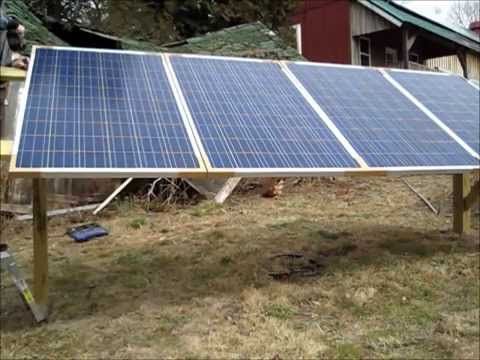If you are trying to install solar panels on a steep roof it may not be possible to place panels at the optimal tilt with traditional racking systems.
Maximum roof pitch for solar panels.
There are many factors that affect the performance of your solar energy system including how sunny it is where you live which way your house faces and even the pitch of your roof.
The orientation of the panels and the angle they are tilted will have a greater effect on annual energy production.
4 the higher output may simply be due to the 300 watt panel s larger physical size rather than having a high efficiency or more advanced technology.
For instance two solar panels may each have a 15 efficiency rating yet the power output rating of one is 250 watts and the other is 300 watts.
In case the roof is very steep you may not be able to get the most optimal tilt angle for the panel especially if it is lower than the angle of the roof.
Most australian homes have a roof pitch of 20 to 30 which is considered optimum for maximizing solar power generation.
Trackers are structures which hold the solar panels in order to move and or tilt them according to the position of the sun.
There are two types of solar panel mounting options.
At this level the solar panel can lie flat on the roof and get enough sunlight to produce enough electricity.
Panels mounted on a standard pitch roof facing east or west will produce approximately 15 less output than panels mounted on a south facing roof of a standard pitch.
When you want to install solar panels it is vital to understand certain features of the roof and the solar panels.
Ideally a fixed roof mounted solar energy system should be at an angle that is equal to the latitude of the location where it is installed.
However the economics of installing solar panels on a roof that does not face the south still usually stack up for the homeowner.
Many roofs are going to have slopes between 30 and 40 degrees which means that solar panels can lie flush against the roof and produce enough electricity for attractive returns.
This is a good option if the house roof cannot support the panels or there is a building with a better roof angle for maximum sun exposure.
As most roofs are not flat your solar contractor will factor the pitch of your roof into the equation.
However pitch angles between 30 and 45 degrees will work well in most situations.
However solar trackers can be used on a ground installation or on a flat roof.
They cannot be mounted on a slanted roof.
Overall the angle of your rooftop has less impact on solar panel performance than the.
Fixed or tracking solar panels.
Fixed or tracking solar panels.





























